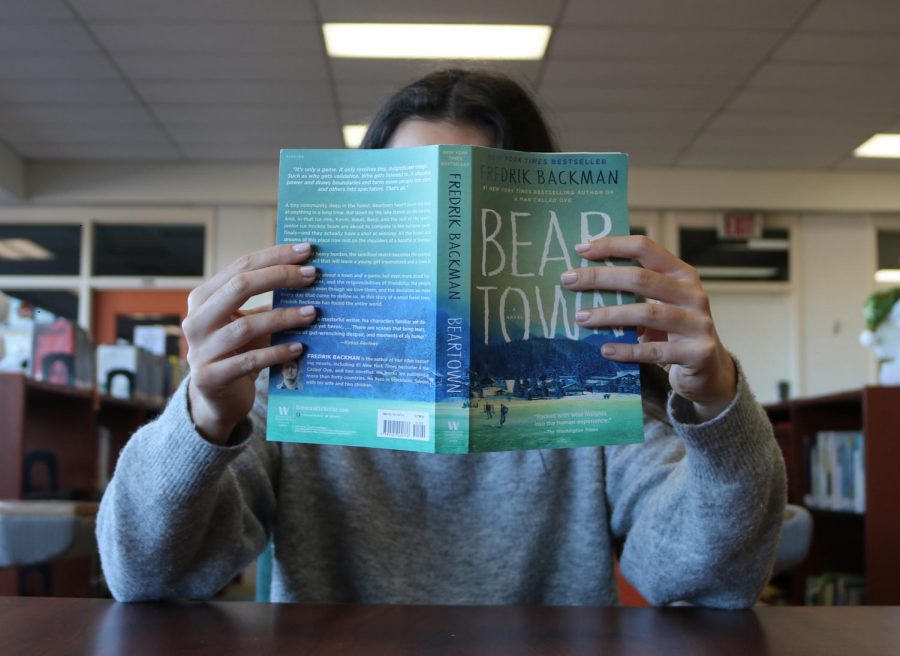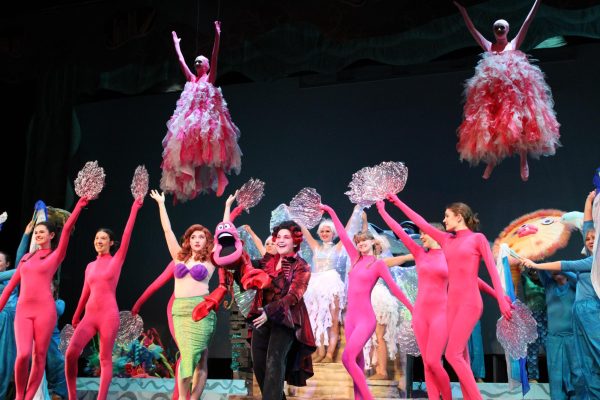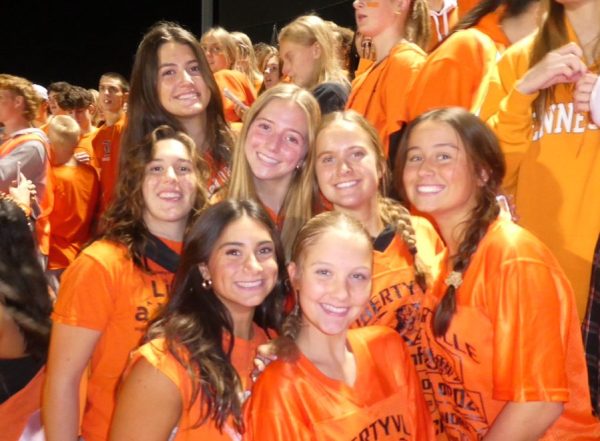Cracking Open the Curriculum
Beartown by Fredrik Backman was introduced into the World Literature Honors curriculum this year and has become a favorite for many students.
It’s the first day of school. You walk into your English classroom and take a seat. After a few moments, the bell rings. Your teacher walks to the front of the classroom and begins to explain the year’s curriculum, including the books you’ll be reading. But how and why are those books chosen?
For decades, the same classic novels have been taught in English classes at LHS and around the country. From “The Odyssey” to “The Great Gatsby”, these books found their way into English classrooms and stayed there. These books were often assigned because of their life lessons or challenging language, but some teachers, including those at LHS, have started to make the switch to more recent and current novels.
“I wanted to bring more diversity into the curriculum because everything I was teaching was [written] by dead white men, and I thought that was pretty messed up,” said freshman literature teacher Mr. Craig Schmidt.
Mr. Schmidt is not the only teacher who feels this way. World literature teacher and diversity coordinator Mrs. Anne Singleton also believes that more modern books should be brought into English classes: “I’ve had students who would say, ‘All the books are really depressing,’ and I agreed… I switched from having a Shakespeare tragedy to a Shakespeare comedy, but those were really problematic, and there’s a lot of racism and sexism.”
At LHS, English teachers have the ability to choose what they teach, which can create a diverse curriculum based on an individual teacher’s preferences. This is why there are lots of different types of books taught across the English classes. Books are discussed and chosen to teach students specific skills with emphasis on comprehension and analysis of a text.
Books can also help people to understand new concepts and gain more skills: “We read to better understand other people and ourselves in the world we live in,” said Dr. Paul Reiff, the English department supervisor.
Despite some recent changes made by many teachers throughout the department, some teachers still incorporate classic texts. For example, freshmen literature honors and AP English language teacher Mr. Dave Lapish still assigns “Lord of the Flies” and “The Scarlet Letter” to his students, and AP English literature teacher Mr. Ryan Ebling teaches various Shakespeare works.
World lit honors teacher Mrs. Karen LeMaistre still believes in teaching classics to her students and explained that, “Some people will ask why we’re still teaching Shakespeare… I often tell my students that [Shakespeare] is a challenging text for honors students, and one of the Common Core skills we have them practice is reading comprehension.”
Added Dr. Reiff, “The older texts are important, and there’s a place for them, and we can’t lose that.”
Some teachers teach modern books along with classics, like freshmen literature honors teacher Mr. Matt Tooley, who assigns both “Fahrenheit 451” and the graphic novel “March: Book One” together.
Between last year and this year, many new books have been added into the English curriculum. Whether old books are replaced or moved to another unit of the year, the English curriculum is constantly changing.
This year, the world literature honors teachers just introduced “Bear Town” by Fredrik Backman, which tells the story of a small town whose hopes rest on a junior hockey team. According to Mrs. LeMaistre, this book has become very popular among students.
Mrs. Sharra Powell’s world literature class is reading “When Dimple Met Rishi”, which is a romantic comedy telling the story of Indian-American teenagers who fall in love while at a summer program.
“I picked it because [Indian] culture was not widely studied, and I thought the best way to study it would be through first-generation Americans (as the book depicts),” Mrs. Powell said.
In addition, over the past few years, many of the freshman literature honors teachers started teaching “Fences” by August Wilson and “The Hate U Give” by Angie Thomas.
“I realized that I had a very similar perspective in terms of authors that I was giving my students to read, and I wanted to change that up,” Mr. Tooley said.
Some teachers get together over the summer to discuss which books they plan on teaching the upcoming year in their classes and debate which would be best for students.
Teachers have a variety of means for finding these books. They can go to the Libertyville High School library to find new books and talk with the teacher-librarians there, both former English teachers, or they may attend workshops and conferences on the topic.
“Over the summer [the world lit teachers] talked a lot about what we want students to be able to do as readers. We want them to be able to understand what they read and ask thoughtful questions and make inferences about characters,” Mrs. Singleton explained.
The books that are chosen are intended to both relate to and challenge students’ perspectives in order for them to get into the curriculum. “There’s this concept of windows versus mirrors. When you read, a character and their experiences may sound a lot like you, so that acts as a mirror, but sometimes they’re more like a window, where you’re learning about something you haven’t learned about,” Mr. Tooley stated.
Added Mrs. Singleton, “My goal was to bring a lot of different perspectives into the curriculum… I look back and see what [groups] were covered enough and what I could focus more on.”
When it comes down to what English class is really for, Dr. Reiff concluded: “I would say that the aims and goals of an English class are to foster a love of reading, so the kids want to read more on their own.”







